Tutorials
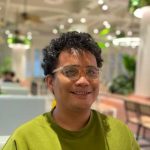
Juan Miguel Jimeno (Singapore)
Juan Miguel Jimeno is an engineer based out of Singapore. He is the creator of the Linorobot suite. The Linorobot project is a suite of materials to allow people to learn about ROS by building their own robots. Later he developed CHAMP, an open-source development framework for building new quadrupedal robots.
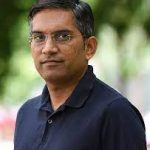
Ashwini Ratnoo (IISc)
Ashwini Ratnoo received the B.E. degree in Electrical Engineering from the MBM Engineering College, Jodhpur, India, in 2003, and the M.E. and Ph.D. degrees, in Aerospace Engineering, from the Indian Institute of Science, Bangalore, India, in 2005 and 2009, respectively. During 2009-2012, he was a postdoctoral researcher at the Aerospace Engineering Department, Technion- Israel Institute of Technology, Haifa, Israel. Currently, he works as an Associate Professor at the Aerospace Engineering Department, Indian Institute of Science, Bangalore, India. His research focuses on guidance and control of autonomous vehicles. He is an elected member of the Indian National Young Academy of Sciences (INYAS), Associate Fellow of American Institute of Aeronautics and Astronautics (AIAA), a member of AIAA Guidance, Navigation, and Control Technical Committee, and a member of the editorial board for IEEE Transactions of Aerospace and Electronics Systems.
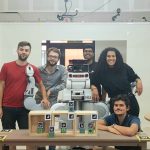
Amandine Mayima, Guilhem Buisan, Guillaume Sarthou, Phani Teja Singamaneni, Yannick Riou (LAAS-CNRS Toulouse)
All speakers are part of the LAAS-CNRS HRI team under the supervision of Rachid Alami. Amandine Mayima is a fourth-year PhD student working on decision-making and online interaction evaluation for collaborative robots. Guilhem Buisan received his PhD degree at the beginning of the month, his thesis focused on planning for both robot and human during collaborative tasks. Guillaume Sarthou is a third-year PhD student whose work is on representing and managing knowledge not only from the robot’s point of view but also from the human’s perspective. Phani Teja Singamaneni is a third-year PhD student with a focus on human-aware navigation, making the robot plan and adapt to human’s trajectories. Yannick Riou is a research engineer developing a motion planning stack for collaborative robots
Main Symposium
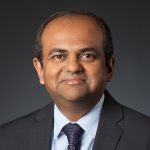
Gaurav Sukhatme (University of Southern California)
Gaurav S. Sukhatme is Professor of Computer Science and Electrical & Computer Engineering at the University of Southern California (USC). He holds the Fletcher Jones Foundation Endowed Chair in Computer Science and serves as the Executive Vice Dean at the USC Viterbi School of Engineering. He served as Chairman of the Computer Science department at USC from 2012-17. He is currently (2020-21) an Amazon Scholar. Sukhatme received his undergraduate education at IIT Bombay, (B. Tech. in Computer Science & Engineering 1991), and M.S. (1993) and Ph.D. (1997) degrees in Computer Science from USC. After a brief postdoc, he joined the USC faculty. He is the co-director of the USC Robotics Research Laboratory and the director of the USC Robotic Embedded Systems Laboratory, which he founded in 2000. Sukhatme’s research is in networked robots, learning robots and field robotics. He has published extensively in these and related areas. He has served as the Principal Investigator on numerous NSF, DARPA and NASA grants. He is a Fellow of the AAAI, the IEEE and a recipient of the NSF CAREER award and the Okawa foundation research award. He was named a distinguished alumnus by IIT Bombay in 2020. Sukhatme is one of the founders of the Robotics: Science and Systems conference. He was program chair of the 2008 IEEE International Conference on Robotics and Automation and the 2011 IEEE/RSJ International Conference on Robots and Systems. He is the Editor-in-Chief of the Springer Nature journal Autonomous Robots and has served as Associate Editor of the IEEE Transactions on Robotics and Automation, the IEEE Transactions on Mobile Computing, and on the editorial board of IEEE Pervasive Computing.

Jorge Cortes (University of California)
Jorge Cortes is Professor and Cymer Corporation Endowed Chair at the Department of Mechanical and Aerospace Engineering at the University of California, San Diego. He received the Licenciatura degree in mathematics from the Universidad de Zaragoza, Spain, in 1997, and the Ph.D. degree in engineering mathematics from the Universidad Carlos III de Madrid, Spain, in 2001. He held postdoctoral positions at the University of Twente, The Netherlands, and at the University of Illinois at Urbana-Champaign, USA. He was an Assistant Professor with the Department of Applied Mathematics and Statistics at the University of California, Santa Cruz from 2004 to 2007. He is the author of “Geometric, Control and Numerical Aspects of Nonholonomic Systems” (New York: Springer-Verlag, 2002) and
co-author of “Distributed Control of Robotic Networks” (Princeton: Princeton University Press, 2009). He received a NSF CAREER award in 2006 and was the recipient of the 2006 Spanish Society of Applied Mathematics Young Researcher Prize. He has co-authored papers that have won the 2008 IEEE Control Systems Outstanding Paper Award, the 2009 SIAM Review SIGEST selection from the SIAM Journal on Control and Optimization, the 2012 . Hugo Schuck Best Paper Award in the Theory category, and the 2019 IEEE Transactions on Control of Network Systems Outstanding Paper Award. He is a Fellow of IEEE and SIAM. At the IEEE Control Systems Society, he has been a Distinguished Lecturer (2010-2014) and an elected member (2018-2020) of its Board of Governors, and is currently its Director of Operations. His current research interests include distributed control and optimization,
network science and complex systems, resource-aware control and coordination, distributed decision making and autonomy, and multi-agent coordination in robotics, transportation, power systems, and neuroscience.

David Hanson (Hanson Robotics)
David Hanson develops robots that are widely regarded as the world’s most human-like in appearance, in a lifelong quest to create true living, caring machines. To accomplish these goals, Hanson integrates figurative arts with cognitive science and robotics engineering, inventions novel skin materials, facial expression mechanisms, and collaborative developments in AI, within humanoid artworks like Sophia the robot, which can engage people in naturalistic face-to-face conversations and currently serve in AI research, education, therapy, and other uses. Hanson worked as a Walt Disney Imagineer, both a sculptor and a technical consultant in robotics, and later founded Hanson Robotics. As a researcher, Hanson published dozens of papers in materials science, artificial intelligence, cognitive science, and robotics journals — including SPIE, IEEE, the International Journal of Cognitive Science, IROS, AAAI, AI magazine and more. He wrote two books including “Humanizing Robots” and received several patents. Hanson was featured in the New York Times, Popular Science, Scientific American, WIRED, BBC and CNN. He also received earned awards from NASA, NSF, Tech Titans’ Innovator of the Year, RISD, Cooper Hewitt Design Triennial, and the co-received the 2005 AAAI first place prize for open interaction of an AI system. Hanson holds a Ph.D. in Interactive Arts and Technology from the University of Texas at Dallas, and a BFA in film Animation video from the Rhode Island School of Design.

Dirk Elias (Robert Bosch Corporate Research)
Prof. Dr.-Ing. Dirk Christian Elias, born in 1966, is currently Senior Vice President at Robert Bosch GmbH and heading the Corporate Research Division ‘Advanced Digital’ (CR/AD). The division is focusing its applied research on ICT, SW development and systems engineering and simulation. He also is responsible for the Bosch Research and Technology Center in India. He joined the research institute for Open Communication Systems in Berlin (GMD FOKUS, now Fraunhofer FOKUS). Dirk received his doctor degree from the Technical University of Berlin (TUB) in computer sciences in 1996. As deputy director of the FOKUS competence center for advanced technologies and systems between 1996 and 2000 he led the laboratory for Home and Office Technologies (HOT), which has been used as a demonstrator and test bed for many smart home activities of Deutsche Telekom Berkom. During 1992 and 2000 he participated in various national and international projects for GMD/FhG, Deutsche Telekom, Siemens, Eurescom, and EU. In 2000 he left GMD/FhG and started IVISTAR AG in Berlin, Germany. IVISTAR focused on IP-based multi-play products for the organization of open offices and provided later also product development services to Deutsche Telekom and T-Systems for the residential market, also including advanced solutions for the smart home and office sector for T- Labs. He worked at IVISTAR eight years as CEO and after leaving to Portugal in 2008 one year as chairman of the supervisory board before the company was sold to an Austrian investor. In Portugal Dirk started setting up the Fraunhofer Portugal Research center AICOS from scratch. Until February 2017 he has been the president of the executive board of Fraunhofer Portugal (FhP) and the director of the Fraunhofer research center for ‘Assistive Information and Communication Solutions’ (FhP-AICOS). From May 2008 on he is also invited full professor at the Faculty of Engineering of the University of Porto (FEUP). In October 2012 Dirk received the ‘Galileo Master 2012’ award in the European Satellite Navigation Competition for his work on indoor positioning based on modulated magnetic fields.

Rachid Alami (University of Toulouse)
Dr. Rachid Alami is Senior Scientist at LAAS-CNRS (Laboratory for Analysis and Architecture of Systems) . He received an engineer diploma in computer science in 1978 from ENSEEIHT, a Ph.D in Robotics in 1983 from Institut National Polytechnique and an Habilitation HDR in 1996 from Paul Sabatier University. He contributed and took important responsibilities in several national, European and international research and/or collaborative projects. His main research contributions fall in the fields of Robot Decisional and Control Architectures, Task and motion planning, multi-robot cooperation, and human-robot interaction. Rachid Alami is holding the Academic Chair on Cognitive and Interactive Robotics at the Artificial and Natural Intelligence Toulouse Institute (ANITI).
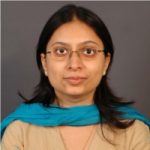
Leena Vachhani (IIT Bombay)
Leena Vachhani is professor at the Systems and Control Engineering Group of Indian Institute of Technology Bombay, Mumbai, India. She has contributed in the areas of embedded control and robotic applications that include topics on multi-agent mapping, exploration, patrolling and coverage. She has developed laboratories on embedded control systems and autonomous robots and multi-agent systems with unique concepts. She is faculty advisor of AUV-IITB team since its inception in 2010. Her current research interests are perception modeling for single and multi-agent applications, edge computing for IoT, and multi-agent applications for IoT framework. She is currently leading the activity of establishing Technology Innovation Hub (TIH) at IIT Bombay under National Mission on Interdisciplinary Cyber Physical Systems.

Rahul Mangharam (University of Pennsylvania)
Rahul is an Associate Professor in the Dept. of Electrical & amp; Systems Engineering and Dept. of Computer & Information Science at the University of Pennsylvania. His interests are in cyber- physical systems at the intersection of formal methods, machine learning and controls. He is the Penn Director for the Department of Transportation’s $14MM Mobility21 National University Transportation Center which focuses on technologies for safe and efficient movement of people and goods. Rahul received the 2016 US Presidential Early Career Award (PECASE) from President Obama for his work on Life-Critical Systems. He also received the 2016 Department of Energy’s CleanTech Prize (Regional), the 2014 IEEE Benjamin Franklin Key Award, 2013 NSF CAREER Award, 2012 Intel Early Faculty Career Award and was selected by the National Academy of Engineering for the 2012 and 2017 US Frontiers of Engineering. He has won several ACM and IEEE best paper awards.
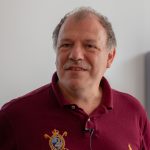
Michael Beetz (University of Bremen)
Michael Beetz is a professor for Computer Science at the Faculty for Mathematics & amp; Informatics of the University Bremen and head of the Institute for Artificial Intelligence (IAI). He received his diploma degree in Computer Science with distinction from the University of Kaiserslautern. His MSc, MPhil, and PhD degrees were awarded by Yale University in 1993, 1994, and 1996, and his Venia Legendi from the University of Bonn in 2000. In February 2019 he received an Honorary Doctorate from Örebro University. He was vice-coordinator of the German cluster of excellence CoTeSys (Cognition for Technical Systems, 2006–2011), coordinator of the European FP7 integrating project RoboHow (web-enabled and experience-based cognitive robots that learn complex everyday manipulation tasks, 2012-2016). Currently he is the coordinator of the German collaborative research centre EASE (Everyday Activity Science and Engineering), since 2017 and is the spokesperson of the Bremen University´s high-profile Area “Minds, Media, Machines”. In February 2020 he was listed in 4th place as one of the most influential researcher in robotics in the AI 2000 ranking. His research interests include plan-based control of robotic agents, knowledge processing and representation for robots, integrated robot learning, and cognition-enabled perception.
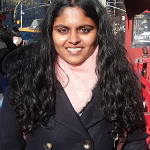
Nidhi Seethapathi (University of Pennsylvania)
Dr. Nidhi Seethapathi is currently a postdoctoral researcher in Bioengineering, Neuroscience, and GRASP (Robotics) Lab at University of Pennsylvania, where she works with Prof. Konrad Kording and collaborates with Prof. Michelle Johnson. Her postdoctoral work involves using data-driven techniques for modeling human movement and for autonomous neuromotor rehabilitation. She will be an Assistant Professor at MIT Brain and Cognitive Sciences and Electrical Engineering and Computer Science starting Jan 2022. She obtained her PhD in Mechanical Engineering from the Ohio State University in 2018. During her PhD, she worked with Manoj Srinivasan building predictive models of human locomotion, focusing on energy optimality, stability, control, and learning. She received the Schlumberger Foundation Faculty for the Future Award during her doctoral studies. Nidhi received a Bachelor’s degree in Mechanical Engineering from Veermata Jijabai Technological Institute in Mumbai, India in 2012.
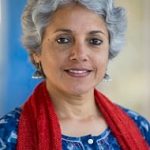
Dr Soumya Swaminathan (Chief Scientist, WHO)
Dr Soumya Swaminathan was appointed WHO’s first Chief Scientist in March 2019. A paediatrician from India and a globally recognized researcher on tuberculosis and HIV, she brings with her 30 years of experience in clinical care and research and has worked throughout her career to translate research into impactful programmes. Dr Swaminathan was Secretary to the Government of India for Health Research and Director General of the Indian Council of Medical Research from 2015 to 2017. In that position, she focused on bringing science and evidence into health policy making, building research capacity in Indian medical schools and forging south-south partnerships in health sciences. From 2009 to 2011, she also served as Coordinator of the UNICEF/UNDP/World Bank/WHO Special Programme for Research and Training in Tropical Diseases in Geneva. She received her academic training in India, the United Kingdom, and the United States of America, and has published more than 350 peer-reviewed publications and book chapters. She is an elected Foreign Fellow of the US National Academy of Medicine and a Fellow of all three science academies in India. The Science division’s role is to ensure that WHO stays ahead of the curve and leverages advances in science and technology for public health and clinical care, as well as ensuring that the norms, standards and guidelines produced by WHO are scientifically excellent, relevant and timely. Her vision is to ensure that WHO is at the cutting edge of science and is able to translate new knowledge into meaningful impact on population health worldwide.
RBCCPS Session
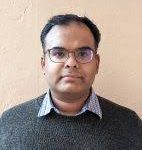
Jishnu Keshavan (Indian Institute of Science)
Dr. Jishnu Keshavan is an Assistant Professor in Mechanical Engineering at IISc. His research interests are broadly in the areas of dynamical systems theory, nonlinear dynamics and control, and autonomous vision. He obtained a PhD (2012) and a MS (2007) in Aerospace Engineering from University of Maryland, College Park, and a BTech in Aerospace Engineering (2004) from the Indian Institute of Technology Bombay.
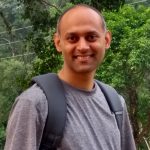
Pavankumar Tallapragada (Indian Institute of Science)
Pavan Tallapragada is an Assistant Professor in the Department of Electrical Engineering and Robert Bosch Centre for Cyber Physical Systems at the Indian Institute of Science. He obtained his PhD at the University of Maryland, College Park in 2013. Then he was a postdoc at UC San Diego from 2014 to 2017. He is the co-author of a paper that won the 2019 IEEE Transactions on Control of Network Systems Outstanding Paper Award. His current research interests include networked control systems, distributed systems and control, multi-agent systems. Some of the applications he is interested in are cyber physical systems, networked transportation systems and dynamics of socio-technical systems.

Vaibhav Katewa (Indian Institute of Science)
Vaibhav Katewa is an Assistant Professor in the Department of Electrical Communication Engineering and an associate faculty member of the Robert Bosch Center for Cyber Physical Systems at the Indian Institute of Science, Bangalore. He was a Postdoctoral Scholar in the department of Mechanical Engineering at the University of California, Riverside from 2017-2019. He received his M.S. and Ph.D. degrees from the University of Notre Dame in 2012 and 2016, and B.Tech. degree from IIT Kanpur in 2007, all in Electrical Engineering. His broad research interests are in the analysis and design of dynamical systems and networks using tools from control theory, optimization, communication theory and network science. Specific areas of interest include security and privacy for cyber-physical systems, sparse feedback control design, distributed detection, estimation and control, networked control systems and robust control.
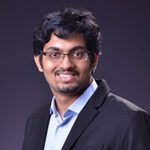
Shishir N Y Kolathaya (Indian Institute of Science)
Shishir N. Y. Kolathaya is an Assistant Professor of the Robert Bosch Centre for Cyber Physical Systems (RBCCPS) and the Department of Computer Science and Automation (CSA) in IISc Bangalore. He received his Ph.D. degree in Mechanical Engineering (2016) from the Georgia Institute of Technology, M.S. degree in Electrical Engineering (2012) from Texas A&M University, and B.Tech. degree in Electrical Engineering (2008) from the National Institute of Technology Karnataka, Surathkal. He started his career in the field of robotics, especially in the domain of legged robots. His primary focus as a PhD student was on stability and control of walking robots. He has diversified to other fields like safety-critical control, and machine learning for all kinds of robotic platforms. He is now a part of the Stochastic Robotics Lab, wherein he focuses on developing novel learning based controllers for quadrupeds.